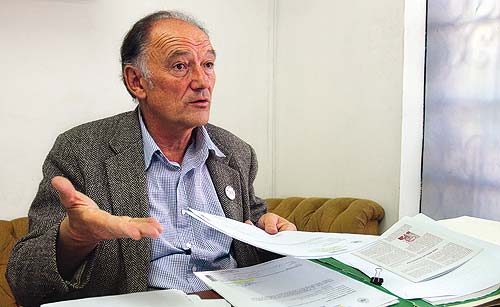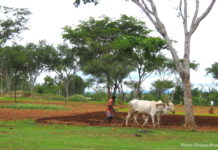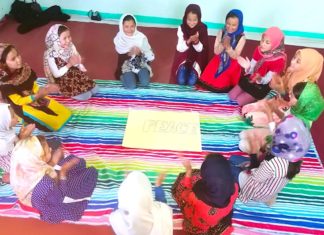
Q: The development of the Conga mine has been blocked since 2011. What has happened in Cajamarca in the last four years in relation to the environmental movement and the mining companies?
Yes, it’s true there have been many demonstrations and protests against the Conga mine to the point where there were five deaths in July 2012. However, when the strategy and tactics are unclear, little can be achieved by social movements. Newmont defends private investment and the people defend their water. Up until now, there has been no bridge of understanding between the two.
Besides, the Peruvian legal structure exclusively favors foreign investment over clean drinking water. There is a clash between private industry (mining) and the common good (water). For the time being, we now have kind of truce and both sides are waiting for a change in government after the 2016 elections.
Q: Many activists in Cajamarca believe that blocking progress on the mine over a long period of time will end up costing Newmont more money than they can afford to continue with the project. Do you think this strategy is working?
No, it’s not working because the social movement is divided by partisan, personal and other kinds political reasons.
Q: Many people who protest against the Conga mine say its operators, don’t have a “social license” to develop the area after contaminating the water for more than 20 years. Have companies, such as Newmont, recognized some of the damage caused to the area? How are they trying to regain their “social license?”
In Cajamarca, we call the lack of social license a “lack of respect,” which is how the people have understood it. If you disrespect someone for many years, the idea of a “social license” does not work. If you mistreat and lie to your neighbor for many years, then you can’t expect to build a good relationship overnight. It will be difficult for Newmont and Yanacocha to regain the social confidence they have lost.
The lawsuits that have been filed regarding water pollution in Cajamarca were archived and forgotten despite an abundance of sceintific evidence. Why? Because of the notorious corruption among Cajamarcan judges and prosecutors. Most of them don’t confront the mine and in exchange they receive some perks. In these cases, all claims end up falling on deaf ears and, therefore, they are not investigated as they should be.
Newmont believes achieving social license is simply a matter of communicating all the “good” they have done so far. They do not realize or do not want to accept that pollution and destruction aren’t fixed with cheap propaganda.
Q: In recent years, what role has the federal government played regarding the anti-mining protests in Cajamarca? What about the regional government?
The federal government ignores the issue. It’s trying to waste time and pass this hot potato to the next government. For now, there is a good relationship between the government and the people of Cajamarca, especially considering it offered a higher investment in the region than usual, which was in excess of 5 billion soles. Still, we have not seen these funds in Cajamarca.
The regional government is tainted with corruption despite the fact that regional president won re-election with the slogan “Steal, but defend the water.” The federal government has just set aside about 45 million soles for the Cajamarcan regional government in its 2015 fiscal year, which means about 30 soles per person for the year.
What is that? Obvisouly, nothing.
Q: In your book, you write about the influence of corrupt media on the mining debate and you give a personal testimony on the matter where you were called an “ecological terrorist” by the local press. Can you briefly describe your experiences with the Peruvian press?
To be brief, this chapter was the most difficult for me to write because it touched the innermost fibers of my existance. The Peruvian press and a high percentage of Cajamarcan media, are linked to the Yanacocha mine and are corrupt. They collect money while blantantly lying about everything that is happening in Cajamarca. And worse, they practice defamation and slander agaisnt their opponents, who do not want anything but a serious and meaningful discussion on the benefits of mining.
There is a Peruvian saying: “They want to kill the messenger of bad news and not those who create bad news.” (>> Continue Reading)










